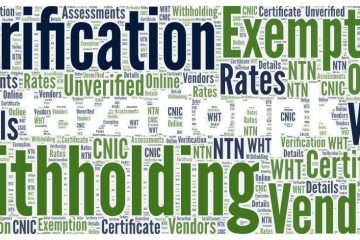As a non-resident Pakistani, understanding the taxation policies in Pakistan can be quite daunting. In this article, we aim to provide a guide to taxation for foreign investors in Pakistan, including the relevant tax laws, policies, and procedures.
Tax Residency
One of the most important things to understand when it comes to taxation in Pakistan is the concept of tax residency. The extent of a person’s income which is liable to tax is dependent on their residential status in Pakistan. A resident person is liable to tax in Pakistan both in respect of Pakistan source as well as foreign source income. Non-resident persons, on the other hand, are liable to tax in Pakistan only in respect of Pakistan source income.
A resident person for a tax year is defined as a resident individual, resident company, resident association of persons, and the federal government. It is important to note that a person’s residential status is determined on a yearly basis, and can change from year to year.
Geographical Source of Income
Section 101 and 101A of the Income Tax Ordinance identify the geographical source of income vis-à-vis Pakistan source and foreign source. Income derived from Pakistan sources is subject to taxation in Pakistan. Broadly speaking, income pursuant to these two sections is classified as Pakistan source either as absolute (having actual source in Pakistan) or fictional (based on the status of the payer in Pakistan). Any income that is not classified as Pakistan source would be treated as foreign source income for the purposes of taxation.
Foreign-Source Income
If a resident taxpayer derives foreign-source income chargeable to tax under the Income Tax Ordinance, in respect of which the taxpayer has paid foreign income tax, the taxpayer shall be allowed a tax credit of an amount equal to the lesser of the foreign income tax paid or the Pakistan tax payable in respect of the income. This helps to avoid double taxation on the same income.
Any foreign-source income derived by a citizen of Pakistan in a tax year who was not a resident individual in any of the four tax years preceding the tax year in which the individual became a resident shall be exempt in the tax year in which the individual became a resident individual and in the following tax year. This exemption is only available for the first two tax years after the individual becomes a resident individual.
Salary Earned Abroad
If a citizen of Pakistan leaves Pakistan during a tax year and remains abroad during the tax year, any income chargeable under the head “Salary” earned by the individual outside Pakistan during that year shall be exempt from tax. However, this exemption is only available if the individual has paid foreign income tax in respect of the salary. Foreign income tax is considered paid if tax has been withheld from the salary by the employer and paid to the revenue authority of the foreign country in which the employment is exercised.







